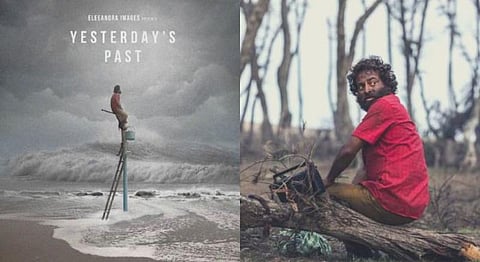
- HOMEGROWN WORLD
- #HGCREATORS
- #HGEXPLORE
- #HGVOICES
- #HGSHOP
- CAREERS
- ABOUT US
- CONTACT US

Climate change is the most imminent threat our planet faces, yet it’s one most ignored. In the past decade, more frequent and intense drought, storms, heat waves, rising sea levels, melting glaciers and warming oceans have come as nature’s red flags to warn us of impending destruction but it all feels so impersonal that we have created a distance between ourselves and this very real incoming danger.
Nila Madhab Panda’s ‘Kalira Atita’ ends that distance. It’s a deeply personal story of a psychologically disturbed man, Gunu, scouring the barren lands of Odisha looking for his lost family. The film begins with him at his village where the residents are vacating it due to a warning for cyclone ‘Yani’. His brother-in-law takes him to his house, and his sister tells him, crying, that he has lost his entire family in the previous cyclone. Gunu doesn’t seem to grasp the truth. An 80-minute tragedy starts at this moment.
Gunu, chased by the police, is the only one travelling against a swarming mob that’s leaving the village. He has a bag full of Sarees and toys for his wife and daughters. His mental state doesn’t allow him to comprehend the death of his family in the usual way. He sees visions of his daughter and wife and plays scenes from the past as they were happening right now. His mind dances with timelines and he lives it. It’s as real to him as the ground he stands in. We’re taken back to a backstory where he isn’t very responsible and leaves his home in a quarrel with his wife. That’s probably the last time he sees them only to return and find them gone.
This is a surreal and devastating story of a man so innocent and untouched by the realities of the world that it radiates a story of mankind itself. Gunu is travelling the wild, trying to climb a tree for a coconut, pump water from a tubewell on the sea shore, catch crabs and cook them in a bonfire, all by himself with no other human in sight except for the traumatic hallucinations of his family. He often sees this elderly figure from the village who used to quote the poet Achyutananda and sing his songs about ‘Kalki’ ( God of Destruction) who will ravage the world. Now Gunu has visions of him telling him about “the new world” that lies under the ocean where people go when they die. Gunu is eager to go there and meet his family although, he cannot just walk into it. “She must come for him as she did for his family.”
The director shot this film in Satavaya village on the coast of Odisha which has now been submerged below water due to the rising sea levels. It was one of the first victims of climate change. In this film, a single character takes us for a ride into the different levels of desolation. It’s minimalist in style and music is used perceptively at specific points to shock us in and out of Gunu’s mind. The environmental setting against one man and his survival instincts transport us to a primal state. The theme works perfectly in synchrony with the director’s statement about climate change and Gunu’s maddening guilt of not having taken care of his family.
Kalira Atita, translating to ‘Yesterday’s Past’, is an emotional window into the future. Gunu’s despair feels like a foreboding sign of the dangers of climate change. His precarious behaviour is deeply unsettling and puts us in touch with a primitive instinct of preservation within ourselves. As he awaits Cyclone Yani to come to take him to his death. We can’t help but wonder if we’re not just like him; guilty of not having done much, waiting for something dark and inevitable.
You can watch this film here.
If you enjoyed reading this, we also suggest:
